Tag: Hannah Paxton ’19
Social Issues Are Not For Selling Cars
by The Cowl Editor on February 15, 2018
Opinion

by Hannah Paxton ’19
Asst. Opinion Editor
“Recognize that he who is greatest among you shall be your servant. That’s a new definition of greatness.” With Martin Luther King Jr. Day and Black History Month at the forefront of everyone’s mind, Dr. King’s words still ring true.
But what does his definition of greatness have to do with buying a Ram truck?
When Dr. King delivered his famous “Drum Major Instinct” sermon in 1968, he inspired everyone to achieve greatness through acts of service. He sought for everyone to have an equal opportunity to serve, regardless of socioeconomic position.
What is so important about this sermon is that he emphasized the importance of greatness being something that one earns through showing compassion to others. He believed that greatness is not something we are simply born with, nor is it something measured by material goods.
Ironically, Fiat Chrysler Automobiles made the decision to use Dr. King’s anti-materialist sermon to sell cars.
The commercial shows various circumstances of human suffering, such as a person doing push-ups, as well as heroic acts, like a firefighter saving a young child. None of these images seem to be related to the one of the Ram truck at the end. Dr. King’s words we are used as a voice-over throughout.
Undoubtedly they meant well, having received permission from Martin Luther King Jr.’s estate. Nevertheless, the Super Bowl commercial struck a nerve for many viewers—and rightfully so.
The aim of the company appeared to be to generate an advertisement that included a positive social idea in order to portray its brand in a good light. What we saw on screen instead was an inappropriate use of Dr. King’s powerful address.
What is most disconcerting is the fact that in the very same “Drum Major Instinct” sermon, Dr. King specifically mentioned automobiles.
He does not praise their utility or the possession of them. Rather, he calls attention to the fact that the wish to be recognized induces people to spend more than they should on material things, like cars.
“Do you ever see people buy cars that they can’t even begin to buy in terms of their income?…it feeds a repressed ego,” said Dr. King in the the same speech that was used in an ad to market a brand of automobiles.
Not only is this choice of speech contradictory in its meaning, but it is also confusing from a marketing perspective.
If the goal was to promote their brand, then where is the correlation between that and advocating a social message? One cannot endorse public service and industrialism at the same time.
In light of a heightened interest in social issues, it is important to recognize that we cannot simply promote equality and diversity for the sake of attaining credibility. Social advocacy is not merely a political or economic concern; it is a fundamental matter that everyone should be invested in.
Regardless of whether or not the Ram advertisement meant well, it did not sit well with the majority of viewers. If we are to endorse social messages, they need to be done sensibly and respectfully, with a primary concern for its value and meaning before its degree of marketability.
If Dr. King were alive today, he would say the same. He would want his words to inspire a movement of love and compassion, not for power or popularity.
Mental Illness: Fight Against the Stigma
by The Cowl Editor on February 8, 2018
Opinion

by Hannah Paxton ’19
Asst. Opinion Editor
In a time where people are so intensely divided—whether it be politics, sports, or any other issue—it is easy to pretend that the world is black and white. When Glee actor Mark Salling committed suicide last Tuesday, his death was celebrated rather than mourned.
There is no question that Salling’s actions before his death were despicable, having been found guilty of possessing child pornography. There is no question that the court would have been justified in sentencing him to four to seven years in prison. But how rational is it to incriminate a human being to the extent that we delight in their death?
Regardless of his faults, Salling was still a human being. His crimes were contemptible, but they should not erase the fact that he was mentally ill. No matter how appalling his actions were in life, death by suicide is tragic and should never be glorified.
Salling’s unstable mental health should not excuse his actions, but it also should not be cause for ignoring the manner in which he died. Nor should we ignore the condition he was in when he was alive.
According to a recent study from the Center for Disease Control (CDC), the United States has found a 1.8 percent increase in suicide, remaining the tenth cause of death as of 2017.
Additionally, a 2016 National Institute on Mental Health (NIMH) study found that one in six adults in the U.S. has a mental illness. Young adults ages 18 to 25 had the highest percentage of any mental illness at 22.1 percent.
Mental illness and suicide are topics the world does not like to talk about. The stigma towards people with depression, anxiety, or any other mental illness is so prevalent that we have become numb to its effects.
This stigma only perpetuates the shame felt by those who live with a mental illness. Despite the large number of people not only in the U.S. but worldwide who have a disorder, we refuse to normalize anxiety and depression.
When we pretend that there is something wrong with a person who is anxious or depressed then they will begin to think the same. No one should have to feel ashamed for who they are, regardless of the mental state they are in.
Shaming someone with a mental disorder is not only ignorant but inhumane. No person should ever have to be in a position where they think ending their life is the only answer. When we see someone else experiencing feelings of guilt and despair, we should not turn the other way.
Perhaps Salling deserved to spend years in prison, but he did not deserve to die the way he did. Rejoicing in a man’s death is just as dehumanizing as his possession of child pornography. Suicide is never the answer, regardless of any criminal actions that were committed in life.
Tangents and Tirades
by The Cowl Editor on January 25, 2018
Opinion
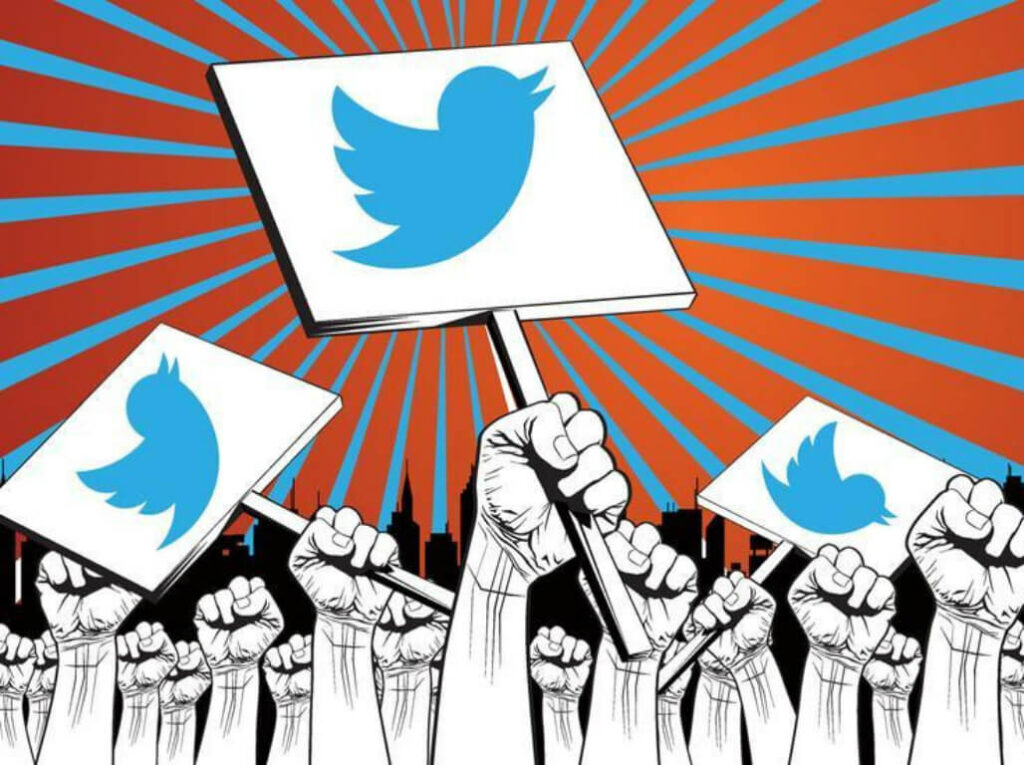
Be Open to Learning
In light of Dr. Bernice A. King’s address last week, in which she advised students to be open-minded, it is important that we continue to educate ourselves as a community.
Last Friday, January 19, a panel of Providence College professors spoke about their research regarding diversity and the legacy of Rev. Dr. Martin Luther King, Jr.
Due to the large audience that attended Dr. King’s speech, one would expect there to be a crowd of intrigued students at last Friday’s forum. However, this was not the case. In fact, the assembly was primarily composed of faculty members.
While an event at 3:00 p.m. on a Friday afternoon might not draw the largest group, the topics that were discussed are pertinent to the current campus environment.
The panel was a fitting way to close the College’s MLK Convocation week. The professors who spoke explained the influence that Dr. Martin Luther King Jr. had on their own lives, as well as the psychology that explicates interracial tensions.
The best way to contribute to the solution of an issue is to educate oneself about the problem. While sitting in a room listening to professors talk might not seem like much of a resolution, it is one step in undertaking the concern for diversity on our campus.
Attending events such as the Humanities Forum are beneficial in that they help us to better understand the problem and encourage us to listen to other perspectives.
-Hannah Paxton ’19
In Search of Truth on Social Media
Once a “breaking news” alert rumbles on a person’s phone, the starting pistol blares in the race to get the most likes on social media. Instead of carefully thinking about issues and considering other arguments, people flood their newsfeeds with their gut reactions.
In a blur of tweets, all gray area is buried under a mound of extreme and hasty posts. Things either “suck” or are “awesome,” people are either “evil” or “heroes,” and all nuance gets ridiculed with dislikes from the mob. Surrounded by over-the-top rhetoric, people join in the chorus in order to fit in, without independently thinking about the issue. After all, liking a movie that “sucks” or a politician that is “evil” does not get likes, as people chip away at their individuality to seem “right” on Facebook.
Worst of all, this flood of gut reactions distorts reality. These baseless accusations and blatant lies hide the facts, serving as a “bodyguard of lies” as Winston Churchill infamously warned. Even with gravely serious news events like October’s Las Vegas shooting, uninformed posters blurted out wild conspiracy theories without a shred of evidence, simply to get likes.
In a matter of seconds, posters blamed a fictitious “Samir Al-Hajeed” who supposedly attacked the country festival in the name of ISIS, a radical leftist named “Geary Danley” who sought revenge against conservative country music fans for the 2016 election, and even the federal government. As baseless as these claims were, thousands retweeted without thinking.
When the next breaking news alert rumbles, think before you post. Become informed, consider different arguments, and carefully consider the evidence and logic of people’s claims. Instead of having grieving families sift through conspiracy theories blaming the Illuminati and New World Order, wait until the facts arrive.
-Nicholas Moran ’19
It is Time to Fix FixIt
After two years of living in traditional dorm housing and a semester abroad, this spring semester I was excited to finally experience one of the joys of upperclassmen housing: a private bathroom. To go from sharing a communal bathroom with thirty of your closest friends to only four feels like a dream come true—if the bathroom actually works, that is.
Moving into my apartment only to find that the plumbing was not in working order and that now, over a week later, the issue still has not been resolved, points to a real problem in the way that maintenance concerns are being handled.
I know that the Office of Residence Life is very busy and has perhaps the hardest job on this campus—coordinating effective housing for thousands of students is not easy—but it is not acceptable for an apartment’s singular bathroom to be continually out of working order with no reprieve in sight.
At this point, I have exhausted all of my resources. My roommates and I have sent multiple emails, made calls, and even visited the Residence Life office in person. All I have left is one desperate plea.
The way that maintenance issues are prioritized and then fixed must be adjusted. If not for me, then for anyone else whose dreams of apartment-style living have been crushed and who are forced to run down to the basement of their building every morning in their pajamas just to use a working restroom.
-Taylor Godfrey ’19
Medicaid Cuts Hurt Low-Income Americans
by The Cowl Editor on January 18, 2018
Opinion

by Hannah Paxton ’19
Asst. Opinion Editor
How much longer until the American people’s basic rights are renounced entirely? In light of President Trump’s imposition of work requirements for Medicaid, it is impossible to say that we are moving forward as a country. In 2018, we should be opening doors for low-income Americans, not closing them. The decision to mandate work for Medicaid only hinders low-income people when it claims to be helping them.
Initially, the demand for work would appear to be a positive motivation for Medicaid recipients. The letter to state Medicaid directors says that the Centers for Medicare and Medicaid Services (CMS) “will support state efforts to test incentives that make participation in work or other community engagement a requirement for continued Medicaid eligibility.”
The Trump administration’s instruction means well to incentivize beneficiaries to provide for themselves, but is that really the policy’s aim?
The main problem with this change in Medicaid services is that its logic is hypocritical. In defense of the work requirement, the letter argues that working improves health, as those who work are apt to have higher incomes, which is correlated with a longer life span. Therefore, those who are unemployed are more inclined to poorer health, depression, and even death.
This argument is rather convoluted, considering that Medicaid is what provides healthcare. Having good healthcare actually encourages work, contrary to what the letter to Medicaid directors claims. What is framed as an incentive in reality is a punishment for low-income Americans by revoking their fundamental right to healthcare.
While this new demand implies that poorer Americans are not “earning” their healthcare, news website WLFI informs that a Kaiser study showed that the majority of adults who are working-age on Medicaid are already working. Approximately 60 percent work full or part time, primarily for employers that do not grant health insurance.
Meanwhile, most Medicaid beneficiaries who are not working have a disability or an ailment, are in school, or are taking care of a family member. Therefore, the primary effect of work prerequisites is to disqualify an enormous number of low-income people, many of whom obtained health coverage through the expansion of Medicaid.
The Kaiser study also found that charging premiums in the Children’s Health Insurance Program and Medicaid diminishes coverage for children and adults. Less people enroll, more leave the program, and less time is spent on the program. Additionally, the effect is largest on those whose income is below the poverty line, and these are the same people who are most likely to be uninsured should they lose coverage.
Helping poor Americans to “get back on their feet” for Medicaid is not the true goal of the CMS policy. Instead, requiring work will have the opposite effect. Since Medicaid was expanded, it has enhanced the financial health of low-income people, amended access to healthcare, and helped to battle the opioid crisis.
Why are poor Americans being punished when they are already working so hard? Rolling back Medicaid will only make it more difficult for them to have access to their basic right to healthcare.
Tangent & Tirades
by The Cowl Editor on December 7, 2017
Opinion
Take a Break: Watch A Capella
By the end of the semester, stress levels and workloads are especially high for students, professors, and faculty alike. Remembering to take a moment to relax and enjoy the holiday season is often difficult, but one end-of-the-semester event always seems to make it easier: Providence College’s very own A cappella show.
Not only did PC’s three A cappella groups deliver high-energy musical performances that could get any PC student singing and clapping along, but their diverse and unexpected set list really took the audience by storm.
First and foremost, PC’s all-male group, Special Guest, completely turned heads with their closing song. I do not think anyone in the crowd was expecting to hear a song from Moana that night, let alone a funky mash-up of “How Far I’ll Go” and “You’re Welcome,” and other songs performed with the spunk and passion that only a Disney soundtrack can evoke.
Strictly Speaking also came in hot with an attention-grabbing cover of one of Elton John’s classics, “Bennie and the Jets,” and no one could ignore the energy and pure clapping power of Anaclastic’s version of “Thunder” by Imagine Dragons.
Although the end-of-semester chaos has fallen upon PC, our A cappella groups’ performances remind us to always take a step back from the stress this time of year, sit down, unwind, and enjoy the talent our students have to offer through their unique and passionate performances.
-Sarah Kelley ’18
Photo Courtesy of Jeremy Selwyn – WPA Pool/Getty Images
Royal Engagement Shows Progress
Wedding bells are ringing in England. On Nov. 27, Prince Harry announced his engagement to Meghan Markle. After meeting on a blind date and dating for a year and a half, the couple is set to be married in spring 2018. This engagement proves to be unprecedented for a number of reasons. Markle, who starred in the drama series Suits, will be the first American in recent history, as well as the first person who identifies as biracial, to marry into the royal family. Markle’s mother is black and her father is white.
While this marriage will prove to be historic, there has been some backlash. In their first interview following the engagement, Markle described negative media regarding her race to be “disheartening.” In a statement, Prince Harry spoke out against such media coverage and denounced “the racial undertones of comment pieces; and the outright sexism and racism of social media trolls and web article comments.”
Despite these negative responses, the engagement has been largely praised. Many see the relationship as being representative of a more modern and progressive monarchy. In their post- engagement interview, both Prince Harry and his fiancée spoke of their plans to work for social justice. Prince Harry and Meghan Markle’s engagement should be celebrated not only because of the love they share, but for its potential effect on a more tolerant world.
-Gabrielle Bianco ’21
Muslims Are Not the Problem
When the leader of the country spreads messages about hate, what hope is there for everyone else? President Trump’s inflammatory retweets of anti-Muslim videos only enable those who harbor the same hatred for anyone who might be considered an outsider and wait for an opportunity to express it.
Throughout his campaign and presidency, Trump has proven to be particularly concerned with national security and the threat of terrorism. However, there is a definitive line between making border protection a high priority and condemning an entire group of people simply because they do not reside within those borders.
Instead of isolating terrorists as the real perpetrators, Trump suggests that a whole religion is at fault. By retweeting videos of a Muslim boy being violent against a boy with crutches, he endorses the views of a far-right and radical nationalist group.
Categorizing all Muslims together is unfair because it suggests that over one billion people worldwide are villainous solely because of their religion. Yet the same logic does not seem to apply nearly as much with perpetrators of any other religion.
Religion should not have to be the primary determinant of an individual’s character, nor should it be grounds for incriminating a consolidated group of people. Muslims are more than their religion, and the ones who pose a threat are in the minority.
-Hannah Paxton ’19
Trethewey’s Poetry Inspires Inclusivity
by The Cowl Editor on November 16, 2017
Campus
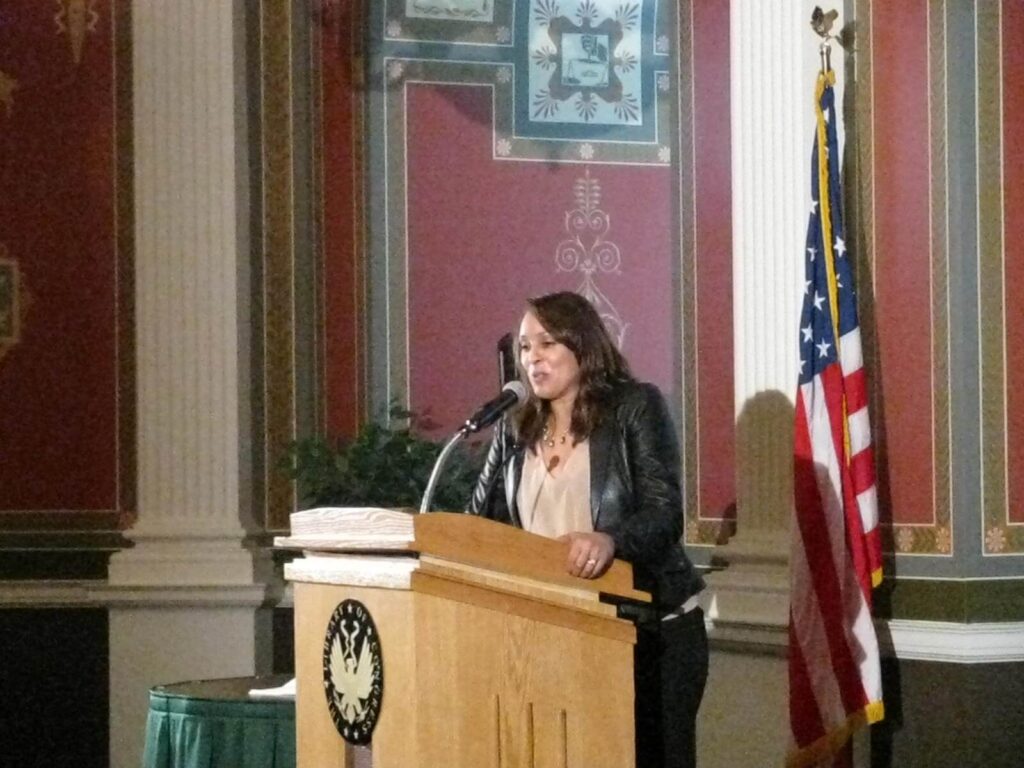
by Hannah Paxton ’19
Assistant Opinion Editor
“Poets are the unacknowledged legislators of the world,” said Jane Lunin Perel, a professor emeritus of creative writing at Providence College, quoting English poet Percy Bysshe Shelley at the College’s second annual Poetry and Fiction Series. Pulitzer Prize winner Natasha Trethewey embodied this ideal as this year’s featured poet, detailing the experiences of a young girl growing up in a biracial family and the concerns of the African American working class.
When we think of poetry, traditional writers such as Percy Bysshe Shelley, Lord Byron, and Robert Frost come to mind, all of whom are associated with poetry written on themes of nature and romance.
But today there is an expanded understanding of what is considered poetry. Modern-day poets like Trethewey expand the definition of poetry, speaking from true experience and giving voice to marginalized communities.
Trethewey has a unique background—she grew up with a black mother and white father who married illegally at the time, and later divorced when she was only six years old.
The poems she read from her collection last Thursday, November 9, speak not only to her own childhood naiveté but the pain and strife her mother underwent in an abusive second marriage that eventually led to her untimely death.
The power of Trethewey’s poetry is that she does not simply tell the story of her past, but evokes feelings of innocence, sadness, frustration, and loss.
For that reason, the audience of students, faculty, and visitors were able to experience Trethewey’s journey with her from childhood to the hour that she spoke.
After losing both her parents, Trethewey chose to channel her emotions through poetry, demonstrating the curative influence of writing. What spoken words cannot explain, written art can express.
Poetry does not only heal; it also unifies. Trethewey once said, “Poetry’s a thing that belongs to everyone,” and it is one of the few things that does. Without it, many voices are silenced and stories are never told. Poetry has a way of destroying boundaries between people as well as opening minds instead of closing them.
Regardless of political, religious, or personal beliefs, poetry is one of the few mediums where everyone can connect on an emotional level. Poetry is a way of alleviating pain while also embracing it. It is a way of leaving the past behind without forgetting it entirely.
When poems are written they are no longer a private thought locked away, but a weight that is shared with everyone who listens to or reads them.
Poets like Trethewey are able to take an experience that is grim and unthinkable and transform it into something positive and enlightening.
While they are not rare, narratives like hers often go unheard, which is why it is so important that we not only listen to her story, but actively engage with it as well.
In a world where many people’s ideas are repressed in most media outlets, Trethewey’s poetry allows for countless voices to be brought to light and heard.
Tangents and Tirades
by The Cowl Editor on November 9, 2017
Tangents

Marathon Brings Nation Together
During a time when division and disunity seem to infiltrate all forms of media and dominate our lives, we often overlook the events that bring our nation and the world together.
This past Sunday, over 50,000 runners toed the start line of the 47th TCS New York Marathon, ready to begin their 26.2 mile journey.
As one of the largest marathons in the world, this international event brings people together from countries all over the world to run through the boroughs of our nation’s melting pot city.
Before the elite runners took off from Staten Island, race director Peter Ciaccia poignantly described the significance of the event, exclaiming, “Today, the spirit of humanity takes center stage and the spirit of humanity has no borders, only start lines.”
In light of last week’s attacks on NYC—and the numerous violent tragedies we have seen streamed across the news this year—events like the NYC marathon and others are hopeful reminders to everyone of the spirit of humanity.
This spirit still prevails in the strides of every runner, regardless of race, ethnicity, class, religion, etc. And despite the tragedies and hate that fill the world, we can still find unity and strength in recognizing the resilience and positivity of the thousands of people who come together every year to prove themselves on this difficult course.
-Sarah Kelley ’18
Never Fear, Basketball Tickets Are Still Here
Basketball is back at Providence College. This week marks the beginning of the 2017 Men’s Basketball season, and an exciting time for all Friar Fans.
The soccer games have been a great way to take a break from homework, show your support, and spend a few hours outside with friends, yelling out at bad calls and cheering whenever the Friars get a goal.
But basketball is a core part of Friartown, and this year, there is the dilemma that student season passes are all sold out. I myself lost track of time and tried to buy tickets later than normal but was disappointed to hear this news.
There is still hope, though! You can purchase tickets at the Dunkin’ Donuts center at each game or online.
This Friday, November 10 at 7 p.m., there is a game in Alumni Hall, and the student tickets are only four dollars.
However, if you want to go, make sure to get a jump on it because there are only a limited amount of students tickets sold per game.
So, even though you may have missed out on a great deal with the season passes, do not let this stop you from being a fellow Friar.
-McKenzie Tavella ’18
Change Discussion on Sexual Assault
The boost in response to sexual assault on social media after the allegations filed against producer Harvey Weinstein is a promising reaction to the long-silenced issue of sexual violence against women. With the recent restoration of the #MeToo campaign, women worldwide have had the opportunity to speak out about their horrific experiences ranging from harassment to overt violence.
However, the way the media frames the perpetrators of such unspeakable exploitation hinders the progress we are making. The Internet’s response to recent accusations against House of Cards actor Kevin Spacey is particularly concerning, as there appears to be a greater focus on the end of his career instead of the condemnation of his crimes.
When searching “Kevin Spacey” online, we find that nearly every article will briefly mention his misbehavior while the majority of the focus is on the consequences House of Cards will face as a result of his dismissal.
Men in entertainment who are convicted of assault tend to be regarded with sympathy, as their actions ultimately result in losing their career. Meanwhile, the victim of the violence is either unknown or ignored, and is rarely given the same attention in the media as his or her abuser.
In addressing incidents of sexual assault, it is important not only to identify the perpetrator, but to treat him or her as such. While Spacey has been punished, the attitude towards his behavior should not change.
-Hannah Paxton ’19
Conversation Is The Key To Change: Student-Organized Forum Promotes Discussion About Race
by The Cowl Editor on November 2, 2017
Campus
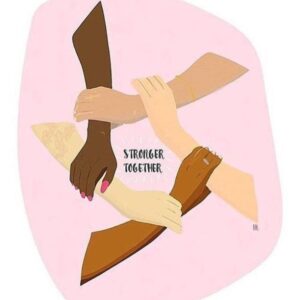
by: Hannah Paxton ’19
Asst. Opinion Editor
With all the negativity pervading, it is easy to believe that hatred dominates our world. The incident on Snapchat last Thursday, in which a male student dressed as Lil Wayne with an offensive caption, is no exception.
When we viewed the photo, when we read the caption, and when we called attention to it on social media, our response was anger—and rightfully so.
Cultural appropriation is one of the many forms of racism in our society. Even if a white student who wears dreadlocks and baggy clothes for Halloween is not aware of its offensive implications, that does not mean that it is not wrong.
In fact, unconscious racism is the most dangerous form of racism, not because the perpetrator is engaging in highly objectionable behavior, but because it perpetuates a culture of ignorance and silence.
In response to the horrific event on the Providence College campus, many students spread messages of encouragement and awareness, such as “#pcbreakthesilence” and “silence is racism’s biggest weapon.” To combat racism, PC did not bring a weapon but instead brought a peacemaker: conversation.
A panel was held last Thursday in ’64 Hall with one of the students who was in the photo, but did not write the caption. Over 300 students attended the event, many of them speaking out about the ramifications of the image on Snapchat and creating a dialogue about cultural appropriation and racism that is very much present on our campus.
Witnessing an act of such great offense is certainly cause for upset and hurt, but it is also an opportunity for change. This is not something PC should tolerate, nor is it something that we should forget.
However, if hate is used to fight hate, then it is hard to imagine how things could be any different.
Executive President of Student Congress Phionna-Cayola Claude ’18, along with the executive board of BMSA organized the even. Claude said, “At that moment, it was different than any other forum, because the students who were in that room were not your regular students who usually attended forums that discussed racism.”
The fact that a crowd of several hundred PC students of various backgrounds, races, and ethnicities were able to gather in a space and have a positive, engaging, and educational discussion about race and culture is a big step in the right direction. Emotions were high; anger, frustration, and hurt were heard in the voices of many, but channeled in a beneficial and informational manner that culminated in a peaceful resolution.
What if every incident of prejudice was challenged and brought to light with discussion? How different would our world be if we not only talked to each other, but genuinely stopped, took a moment, and listened? What if there was no silence?
When we take the time to talk to one another, we learn something we would have never otherwise thought about.
Dozens of voices were heard in ’64 Hall, voices that have continuously been ignored or repressed. In a small section of campus, students were able to converse with each other and truly understand one another’s points of view.
“There is hope to change, and there is a desperate need for change of culture at PC. That starts with being educated and aware of the privilege and struggles that every single student experiences at different extremes,” said Claude.
As a community, our mission is centered on fostering change. The Friar Four foundational pillars call for students to have honest conversations about culture, race, and bias, as well as actively pursue the truth. With this in mind, the panel was true to the College’s values.
The way PC responded matters, not just today, or even just this week. It is going to continue to matter, because in the event that something like this happens again—and it very well could—there is no better way to break the silence.
Malala Is More Than Her Jeans
by The Cowl Editor on October 26, 2017
Opinion
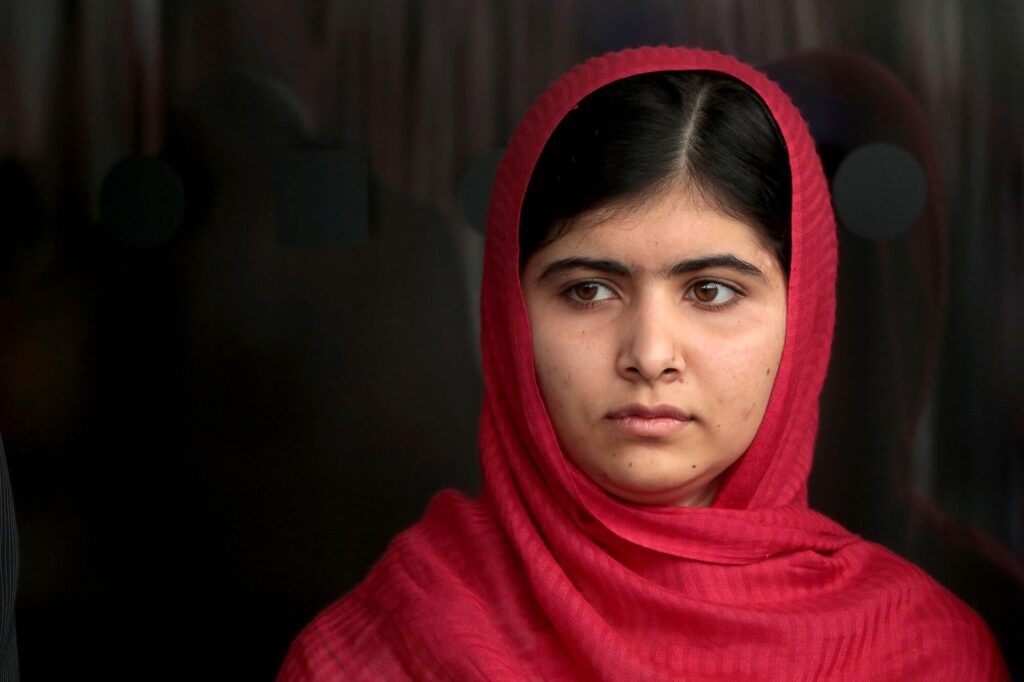
by Hannah Paxton ’19
Asst. Opinion Editor
What does it mean to be a young Pakistani woman in 2017? When Malala Yousafzai was shot in the head by a Taliban gunman in 2012, she was one voice of the many who demanded that women be offered an education. Despite this horrific event, she did not let it stop her from speaking out for young girls, and becoming the youngest recipient of the Nobel Peace Prize.
However, her accomplishments do not matter to her meticulous online critics. What really matters to them is that Yousafzai wore jeans on a college campus.
In the grand scheme of Yousafzai’s life, the obsession with her “Western style” attire is minuscule in comparison to the sheer fact that she is currently attending Oxford University when five years ago she was severely harmed for advocating women’s education.
There is so much fear and animosity surrounding an educated young woman because she challenges centuries of unconscious prejudice. How much of this debate around Yousafzai’s jeans is really about her wardrobe choices? How much of it is really about a Pakistani woman receiving a college education and accomplishing her goals?
We cannot claim to have attained full gender equality when women are still being scrutinized for their appearance. Nor can we claim to be free of bias when Yousafzai’s pants appear to be receiving more attention from the media than her admission to Oxford.
This equality will not be reached until a woman’s apparel is no longer the primary determinant of her value, and until she can be taken seriously regardless of her wardrobe.
Yousafzai is a force to be reckoned with, not because she is a Pakistani girl wearing jeans, but because she represents a better future; one where a woman can achieve her dreams and wear whatever she wants while doing so.
Tangents and Tirades
by The Cowl Editor on October 19, 2017
Opinion
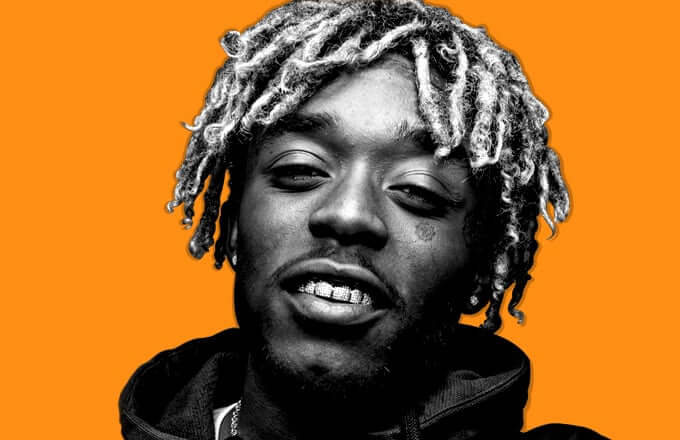
Birth Control Prevents More Than Just Pregnancy
If President Trump intends to prevent “risky sexual behavior,” rolling back birth control coverage is scientifically proven to be one of the worst ways to approach the issue. Regardless of religious views on abortion, forbidding usage of birth control is no better than hindering one’s access to other medications.
The common misunderstanding with birth control is that women use it solely for contraceptive purposes. But the pill has a variety medical purposes that many are unaware of.
When we think of birth control we think of preventing pregnancy, yet the truth is its medicinal abilities extend beyond that of the reproductive cycle.
A study from the National Survey of Family Growth found that while 86 percent of birth control consumers use the pill for pregnancy prevention, 31 percent use it for menstrual pain relief, 28 percent use it for other pain relief such as migraines, 14 percent use it for acne treatment, and four percent use it for endometriosis treatment.
If Trump’s plan is to reduce abortion rates, cutting back on free birth control is not an effective way to do so. Another study in 2012 found that when women received free birth control, the rate of abortion and unplanned pregnancy decreased by a range of 62 to 78 percent.
Not only is the president perpetuating the issue of abortion, but he is robbing millions of women of their right to medical treatment.
-Hannah Paxton ’19
Late Night Madness is Maddening
Late Night Madness has become an event defined by clichés and repetition. Year after year, the same trio of occurrences goes down in Mulaney Gymnasium: dance groups dance, basketball teams play basketball, and rappers rap (and Coach Cooley wears a track suit).
This year, however, the decision of event regulators to separate the traditional concert from the dances and teams’ introductions badly hurt attendance for the pre-concert portion of the night. If the Providence College sports marketing team does not return the event to its previous format, the appeal and enticement of the basketball season kick-off could be lost.
The plethora of empty seats inside the gym during the dancing and introductions of the basketball team demonstrates the significance of the rapper for the fans. In years past, students have packed the arena in the hopes of being able to snag a good spot on the floor to take in a performance from rappers like Big Sean and Ludacris.
This year, however, with the obligation to attend the dances and the basketball portion of the event eliminated, many students decided to skip the festivities many of them might see as less entertaining when compared with a top-name rapper coming to campus.
Indeed, the sports marketing team might have missed the forest for the trees: students just might enjoy a huge concert more than members of their own campus community performing. It would be a big mistake not to change Late Night Madness back to its original arrangement.
-Kevin Copp ’18
Millions Suffer Without Subsidies
Has the horror of Friday the 13th come a day early this year? Last Thursday night, President Donald Trump announced his plan to terminate an essential set of subsidies of the Affordable Care Act. These subsidies, created to help lower-income enrollees pay for their health care, are estimated at $1 billion, and play a critical role in ensuring Americans’ access to essential health care that they would otherwise be unable to afford.
Not only is President Trump disproportionately targeting and jeopardizing the health of some six million of our nation’s most vulnerable citizens, but he is again exemplifying his and the Republican Party’s failure to “repeal and replace” Obamacare.
Picking apart vital elements of the Affordable Care Act, without actually replacing this complex piece of health-care legislation, inserts a virtual ticking time bomb into our health care system.
Without these crucial subsidies, we can expect more health insurers to withdraw from the marketplace for the following year, fewer healthy subscribers enrolling in marketplace plans because of continued premium increases, and consequently older and sicker pools of participants covered under whatever plans remain.
These fatal changes, coupled with Trump’s plan to create less expensive (and less comprehensive) health care plans seem to be a virtual death sentence for the marketplace. Without an actual feasible replacement for the ACA, Trump’s most recent actions are but another example of his unfulfilled political promises, which continue to leave millions of America’s most vulnerable sidelined.
-Sarah Kelley ’18

